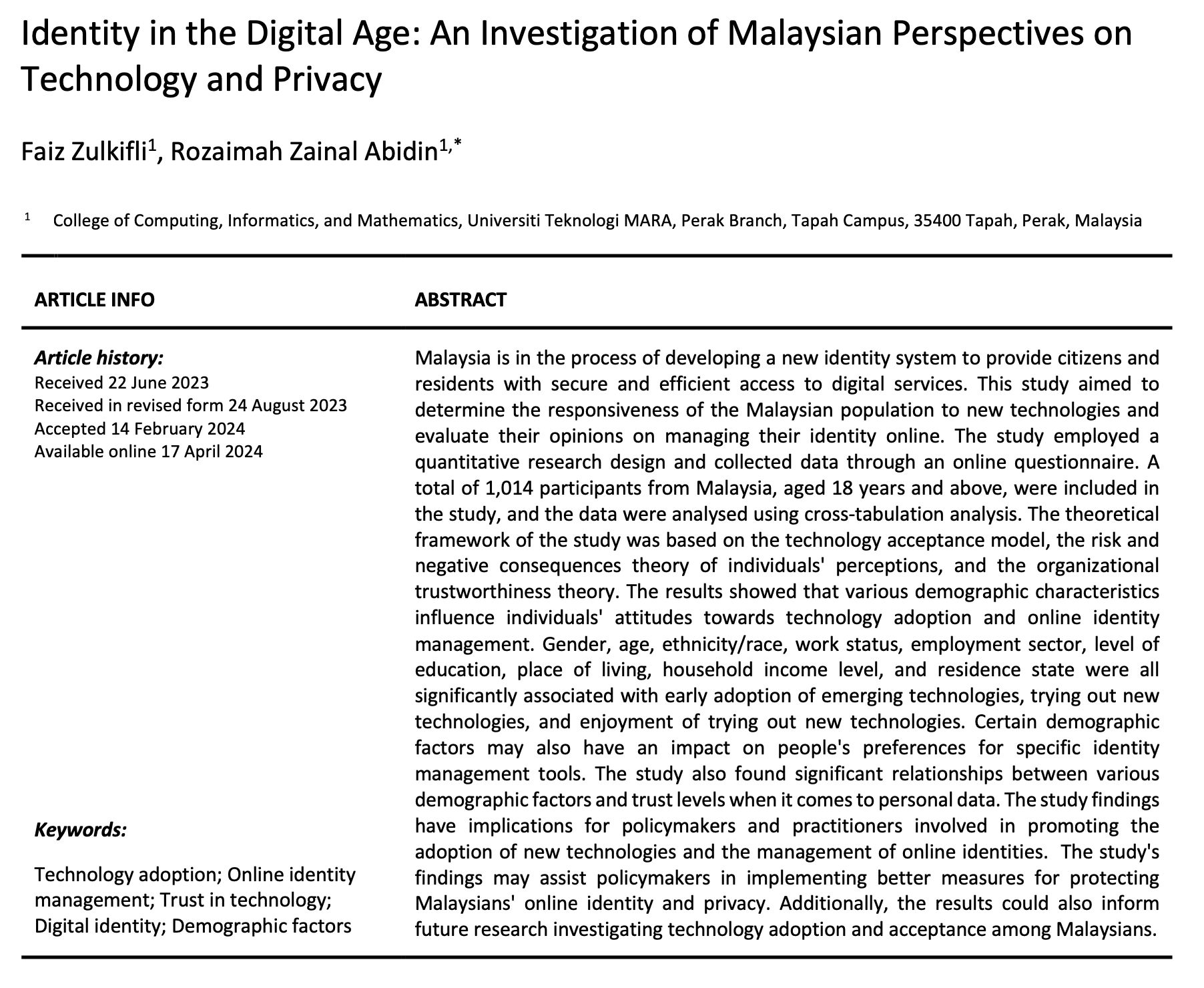Identity in the Digital Age: An Investigation of Malaysian Perspectives on Technology and Privacy
DOI:
https://doi.org/10.37934/araset.43.2.120Keywords:
Technology adoption, Online identity management, Trust in technology, Digital identity, Demographic factorsAbstract
Malaysia is in the process of developing a new identity system to provide citizens and residents with secure and efficient access to digital services. This study aimed to determine the responsiveness of the Malaysian population to new technologies and evaluate their opinions on managing their identity online. The study employed a quantitative research design and collected data through an online questionnaire. A total of 1,014 participants from Malaysia, aged 18 years and above, were included in the study, and the data were analysed using cross-tabulation analysis. The theoretical framework of the study was based on the technology acceptance model, the risk and negative consequences theory of individuals' perceptions, and the organizational trustworthiness theory. The results showed that various demographic characteristics influence individuals' attitudes towards technology adoption and online identity management. Gender, age, ethnicity/race, work status, employment sector, level of education, place of living, household income level, and residence state were all significantly associated with early adoption of emerging technologies, trying out new technologies, and enjoyment of trying out new technologies. Certain demographic factors may also have an impact on people's preferences for specific identity management tools. The study also found significant relationships between various demographic factors and trust levels when it comes to personal data. The study findings have implications for policymakers and practitioners involved in promoting the adoption of new technologies and the management of online identities. The study's findings may assist policymakers in implementing better measures for protecting Malaysians' online identity and privacy. Additionally, the results could also inform future research investigating technology adoption and acceptance among Malaysians.
Downloads





























